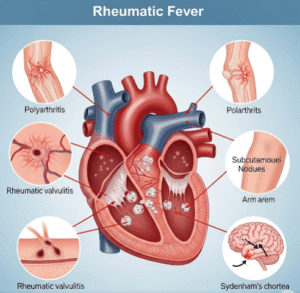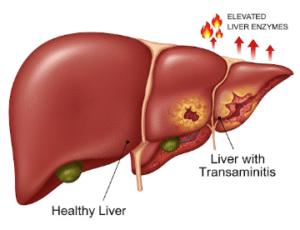Overview
Chest pain is a common but potentially serious symptom that can result from a wide variety of conditions, ranging from minor muscle strain to life-threatening heart or lung diseases. In Korea, where advanced cardiology and emergency care systems are available, chest pain is treated as a critical warning sign that requires prompt medical evaluation to rule out serious causes such as heart attack or pulmonary embolism.
What is Chest Pain?
Chest pain refers to any discomfort, pressure, tightness, or burning sensation felt in the chest area. It may arise from the heart, lungs, esophagus, muscles, ribs, or nerves. The nature, intensity, and associated symptoms often help determine the underlying cause. While not all chest pain is related to the heart, it is always considered a medical concern until proven otherwise.
Symptoms
Chest pain may vary depending on the cause, but common presentations include:
- Pressure, squeezing, or heaviness in the chest
- Sharp, stabbing, or burning pain
- Pain radiating to the shoulder, arm, neck, jaw, or back
- Shortness of breath
- Sweating, nausea, or dizziness
- Pain worsening with movement, deep breaths, or coughing
Causes
- Cardiac causes:
- Angina (reduced blood flow to the heart)
- Heart attack (myocardial infarction)
- Pericarditis (inflammation of the sac around the heart)
- Aortic dissection (tear in the aorta, life-threatening)
- Pulmonary causes:
- Pulmonary embolism (blood clot in the lungs)
- Pneumonia
- Pneumothorax (collapsed lung)
- Gastrointestinal causes:
- Acid reflux (GERD)
- Esophageal spasm
- Stomach ulcer
- Musculoskeletal causes:
- Costochondritis (inflammation of rib cartilage)
- Muscle strain or trauma
- Other causes:
- Anxiety or panic attacks
- Shingles (herpes zoster)
Risk Factors
- High blood pressure, diabetes, or high cholesterol
- Smoking and excessive alcohol use
- Obesity and sedentary lifestyle
- Family history of heart disease
- Chronic lung disease (asthma, COPD)
- High stress levels
Complications
If untreated, chest pain caused by serious conditions may lead to:
- Heart attack or sudden cardiac arrest
- Heart failure
- Stroke
- Severe lung damage or respiratory failure
- Death in cases of aortic dissection or massive pulmonary embolism
Prevention
- Maintain a healthy lifestyle with regular exercise and a balanced diet
- Avoid smoking and excessive alcohol intake
- Control blood pressure, cholesterol, and blood sugar
- Manage stress effectively
- Regular heart checkups, especially for those with family history or risk factors
Treatment Options in Korea
Korea offers world-class emergency and cardiovascular care for patients with chest pain:
- Emergency care:
- Rapid assessment in emergency departments (ECG, chest X-ray, blood tests for heart enzymes)
- Immediate oxygen, aspirin, or nitroglycerin if heart-related pain is suspected
- Cardiac interventions:
- Coronary angiography and stent placement for blocked arteries
- Bypass surgery for severe coronary artery disease
- Advanced imaging (CT, MRI) for diagnosis
- Pulmonary care:
- Anticoagulants for pulmonary embolism
- Chest tube insertion for pneumothorax
- Gastrointestinal care:
- Acid-suppressing medications for reflux-related pain













